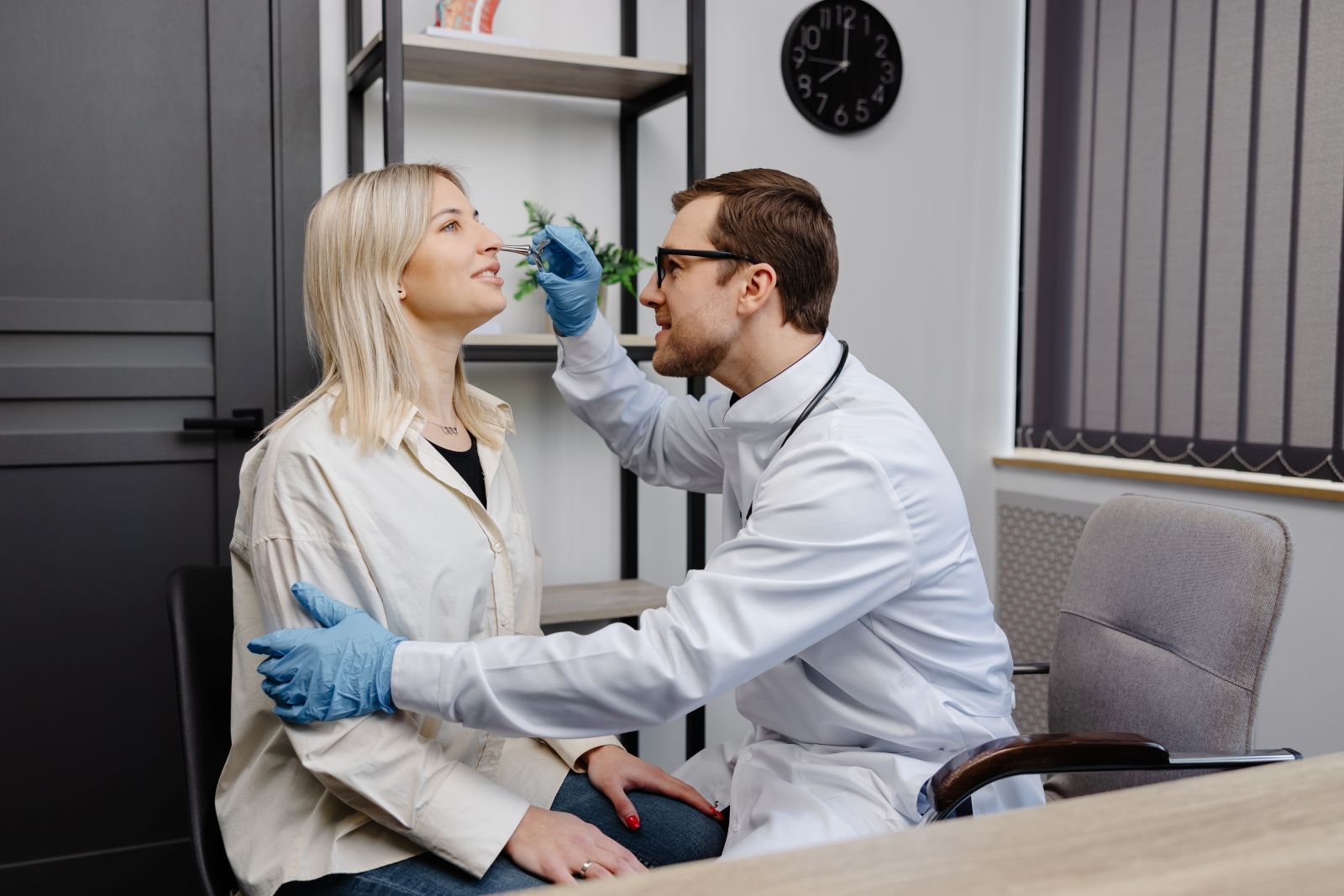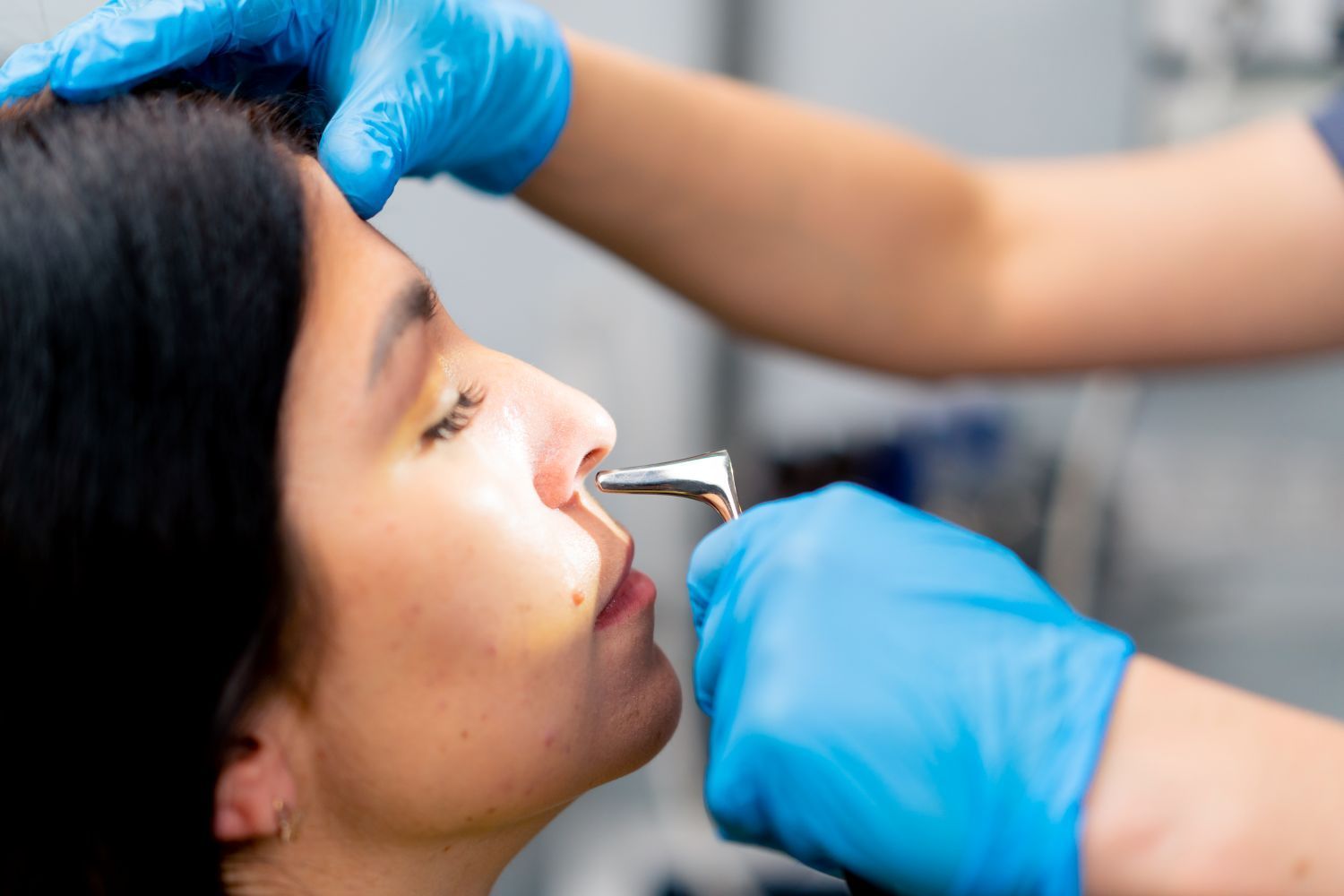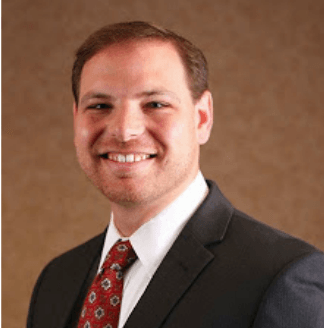Current Treatments for COVID-19 Smell Loss
COVID-19 (SARS-CoV-2) infection is known to cause varying degrees of loss of smell. Reduced or loss of sense of smell is referred to as hyposmia or anosmia respectively and is one of the early symptoms of COVID-19. In many cases, the hyposmia or anosmia improves within several weeks. However, there have been cases of extended COVID-19 symptoms in which certain symptoms persist past the acute infection for months to years, including fatigue, brain fog, and loss of smell. Today, we will explore why exactly hyposmia happens with long COVID-19 and some different treatments to recover one’s sense of smell.
Why does COVID-19 cause loss of smell?
COVID-19 infection causes loss of smell when the viral particles invade the supporting cells (sustentacular cells) neurons in the nose that detect smell and decrease their ability to sense odors (Zazhytska et al., 2022). Loss of smell that persists for a long time can be very distressing for people and so here are some ways to treat this detailed below.
Olfactory Training
Olfactory training is used frequently after an infection and has been shown to effectively improve overall smell. It involves a repeated, daily exposure of a combination of essential oils. Often, four essential oils, including rose, lemon, clove, and eucalyptus are sniffed for approximately 3 months (Pires et al., 2022). Within this multicenter clinical trial, olfactory training was given to a sample of 80 patients who ranged from 18-60 years old and were less than 3 months out from the onset of COVID-19 infection. The researchers quantified the sense of smell using the University of Pennsylvania Smell Identification Test (UPSIT) graded out of 40 points, with an increase of UPSIT score by 4 points being considered a significant improvement of smell (Pires et al., 2022). The group of individuals were separated into two subgroup which were given either a combination of 4 essential oils or 8 essential oils. Both groups had significant improvement in their sense of smell based on the subjective opinions of the patients themselves as well as based on the increase of 1.5 ± 3.9 in UPSIT score after treatment. There was no significant difference between the group that received 8 essential oils and the group that received 4 essential oils to sniff.
Olfactory training seems to improve the connections between the areas of the brain responsible for the perception of smell and the olfactory bulb to better the overall sense of smell. Overall, olfactory training is a therapy that may help individuals recover their sense of smell caused by COVID-19 infection.
Stellate Ganglion Block
The COVID-19 virus has been known to affect the nervous system as a part of its infectious process. In particular, it affects the autonomic nervous system which plays a role in regulating inflammation and other bodily processes. Therefore, the virus has the ability to cause persistent issues post infection, resulting in long COVID-19 symptoms such as decreased sense of smell. The virus alters the activity the sympathetic nerves of the autonomic nervous system and so these nerves serve as a potential target for therapy to alleviate symptoms caused by long COVID-19. An example of such treatment would be a stellate ganglion block which involves numbing a bundle of sympathetic nerves making up the stellate ganglion and blocks their connections.
The stellate ganglion block procedure involves the ultrasound-guided injection of a local anesthetic, such as ropivacaine or bupivacaine, to the stellate ganglion located anterior to the neck of the first rib (Kalava et al., 2023). A patient can receive a unilateral stellate ganglion block or a bilateral stellate ganglion block. A stellate ganglion block causes Horner’s syndrome where patients will have drooping eyelid, pupil constriction and lack of sweating. Patients usually receive a right-sided stellate ganglion block first and are allowed some time to recover from the Horner’s syndrome that is caused by the administration of the first block. Then, they can receive a left-sided stellate ganglion block.
The stellate ganglion block may improve long COVID-19 related symptoms, including cough, fatigue joint pain, and reduced sense of smell and taste (Pearson et al., 2023). A study of 41 patients demonstrated that 86% experienced a reduction of their long COVID-19 symptoms after the administration of the block. Treatment with solely the stellate ganglion block improved sense of smell and taste in 56% of the 41 patients. With the addition of a trigeminal nerve block alongside the stellate ganglion block, more individuals experienced a positive effect on their sense of smell and taste.
Another study demonstrated that of a group of 6 patients, 5 of them had improvements in their sense of smell and taste post bilateral stellate ganglion block administration (Kalava et al., 2023). Patients who are struggling with a myriad of persistent symptoms post COVID-19 infection can discuss this option with their physician to see if it is a potential treatment that may help with their particular symptoms. However, it should be noted that these studies lacked randomization or placebo control, and thus the evidence is weak for its effectiveness.
Nicotine Patches
The COVID-19 virus infects different parts of the body in various ways. One of those ways involves its spike protein, which has been discovered to bind to several receptors including the nicotinic acetylcholine receptors (nAChRs). The nAChrRs are integral for cholinergic neural regulation which is implicated in the modulation of many different functions including learning, memory, attention. Importantly, it modulates the piriform cortex and the olfactory bulb which plays a major role in regulating sense of smell in people.
Since, the spike protein of SARS-CoV-2 viral particles binds to the nAChr receptors it can cause neural deficits along with reduced sense of smell. But these receptors can be used as a target for a therapy to displace the spike protein and reduce those side effects caused by the SARS-CoV-2 viral particles. Nicotine is an agonist ligand that has a significantly higher affinity for the nAChr receptors in comparison to acetylcholine indicating it might have the capacity to displace the viral particles and disrupt its mechanism of causing side effects such as loss of smell. It was noted in previous studies that individuals who consumed nicotine had significantly lower proportion of severe, fatal cases of COVID-19 infections further demonstrating the potential of using nicotine as a treatment for long COVID-19 (Miyara et al., 2020).
Nicotine patches are theorized based on this knowledge as a treatment for persistent symptoms post infection. In a case study, four patients who were administration of nicotine patches had improvement in hyposmia as well as other symptoms including fatigue, weakness, shortness of breath, and exercise intolerance (Leitzke, 2023). It was noted that it took a duration of approximately 2 weeks of using nicotine patches to fully restore sense of smell. This study is very small and also lacks randomization or placebo control, so it is difficult to know if this therapy works.
The nicotine is thought to displace the SARS-CoV-2 viral particles from the AChr receptors potentially resulting in a SARS-CoV-2 infection. Since the patient has already encountered the virus before, they could be able to neutralize the infection quickly due to the antibodies they have formed from the first time of infection. Therefore, nicotine patches may also alleviate reduced sense of smell in individuals suffering from hyposmia post COVID-19 infection.
Administration of Theophylline
Theophylline is a phosphodiesterase inhibitor that prevents the degradation of secondary messengers involved in the olfactory signaling pathway and is thought to promote the sense of smell through this mechanism. Since the loss of smell could also be due to the hyperinflammatory state caused by SARS-CoV-2, it is possible theophylline may help recover sense of smell by acting as an anti-inflammatory.
There are ongoing investigations on theophylline in the benefit of recovering sense of smell post viral infection. One study demonstrated that administration of theophylline improved reduced or loss of smell (Henkin et al., 2012). Theophylline can be administered in two different ways either orally or intranasally. In this pilot study, 6 patients with hyposmia were given 200 to 800 mg/d of oral theophylline anhydrous from 2 months to 12 months. With the oral theophylline, there was maximal improvement from 4 to12 months of daily treatment. With the intranasal spray, a group of 8 patients with hyposmia were given 20 μg/d of intranasal theophylline methylpropyl paraben and had maximal improvement by 4 weeks of administration of the spray. Both intranasal spray and oral medications improved sense of smell in both groups of patients in the study but there was more of a profound recovery with the intranasal theophylline spray. Also, patients developed less resistance to theophylline when using the intranasal spray in comparison to the oral theophylline.
This small study demonstrated that theophylline intranasal spray may help patients suffering from hyposmia or anosmia recover their sense of smell potentially. The oral medication was not optimal as it has higher chances of resistance and is not nearly as effective as the intranasal spray.
Combination Therapy
With the rise prolonged loss of smell post COVID-19 viral infection, new therapies have been investigated to see if they could help with alleviating those symptoms. A combination therapy including a regimen of dexamethasone as the corticosteroid, mesoglycan as the glycosaminoglycan based antithrombotic agent, IV multivitamin complex along with an oral IV multivitamin complex, acetazolamide as the diuretic, and omeprazole (Vento et al., 2024).
The researchers carried out a 12-month observational pilot study with a group of 87 people that were experiencing hyposmia post COVID-19 infection. The patients’ sense of smell was quantified with the use of a visual analog scale score (VAS) on a scale between 0 (complete loss of smell) and 10 (complete recovery of sense of smell). The group of 87 people had an average VAS score of 2.21 prior to start of treatment. Patients showed significant improvement in sense of smell for individuals after continuously taking it with the average VAS score improving to a 6.48 at 6 months and 6.99 at 12 months of daily treatment. It was noted that, people who started the therapy within 90 days after infection had the best improvement of function in comparison to when started later (Vento et al., 2024). The overall trend was noted that the sooner the therapy was started post infection the better the results of the treatment for recovering sense of smell. However, this regimen still yielded significant improvement in smell even in individuals with chronic loss of smell.
Platelet-Rich Plasma (PRP) Treatment
Platelet-rich plasma (PRP) is plasma derived from one’s own blood and conditioning it to have a high concentration of platelets. PRP is rich in growth factors that promotes regeneration and has anti-inflammatory effects (Maniaci et al., 2024). In the studies evaluated in the comprehensive review, researchers compared the pre-treatment and post-treatment outcomes using both objective and self-reported tests. These tests included Threshold, Discrimination, and Identification (TDI) score, Sniffin’ Sticks test (SST), and self-reported questionnaires (Maniaci et al., 2024). The review investigated 2 prospective, 1 pilot, 2 randomized controlled, and 1 multicenter controlled studies investigating the effects of PRP injection on hearing loss due to long COVID.
Before the PRP injection, anesthesia was administered using a 10% xylocaine spray. The PRP injections were then performed in the office or peri-operatively and were injected into the middle turbinate or nasal septum. The PRP injections ranged from 1-2 mL of PRP. Some individuals received one injection, and others received up to three injections. Overall, across the studies, it was noted that there was a significantly higher improvement of sense of smell post treatment in comparison to control groups. The researchers hypothesized that PRP may stimulate recovery of the olfactory neurons while also regenerating the nasal mucosa contributing to the improvement of sense of smell. So, PRP injections may potentially help individuals recover their sense of smell post COVID-19 infection.
Hyposmia can be extremely stressful to deal with especially when the issue is persisting for so long. So, here are some treatments detailed above that can be explored alongside a medical professional to help determine what could best ameliorate those symptoms and make profound progress in recovering sense of smell.
References
- Henkin, R. I., Schultz, M., & Minnick-Poppe, L. (2012). Intranasal Theophylline Treatment of Hyposmia and Hypogeusia. Archives of Otolaryngology–Head & Neck Surgery, 138(11), 1064. https://doi.org/10.1001/2013.jamaoto.342.
- Kalava, A., Benyahia, S. A., Tico Calzada, R., & Staat, C. M. (2023). Efficacy of Stellate Ganglion Block in Treating Long-Term COVID-19-Related Olfactory and Gustatory Dysfunction: A Case Series. Cureus. https://doi.org/10.7759/cureus.40929
- Leitzke, M. (2023). Is the post-COVID-19 syndrome a severe impairment of acetylcholine-orchestrated neuromodulation that responds to nicotine administration? Bioelectronic Medicine, 9(1), 2. https://doi.org/10.1186/s42234-023-00104-7
- Maniaci, A., Lavalle, S., Masiello, E., Lechien, J. R., Vaira, L., Boscolo-Rizzo, P., Musa, M., Gagliano, C., & Zeppieri, M. (2024). Platelet-Rich Plasma (PRP) in the Treatment of Long COVID Olfactory Disorders: A Comprehensive Review. Biomedicines, 12(4), 808. https://doi.org/10.3390/biomedicines12040808
- Miyara, M., Tubach, F., Pourcher, V., Morélot-Panzini, C., Pernet, J., Haroche, J., Lebbah, S., Morawiec, E., Gorochov, G., Caumes, E., Hausfater, P., Combes, A., Similowski, T., & Amoura, Z. (2020). Low rate of daily smokers in patients with symptomatic COVID-19. https://doi.org/10.1101/2020.06.10.20127514
- Pearson, L., Maina, A., Compratt, T., Harden, S., Aaroe, A., Copas, W., & Thompson, L. (2023). Stellate Ganglion Block Relieves Long COVID-19 Symptoms in 86% of Patients: A Retrospective Cohort Study. Cureus. https://doi.org/10.7759/cureus.45161
- Pires, Í. de A. T., Steffens, S. T., Mocelin, A. G., Shibukawa, D. E., Leahy, L., Saito, F. L., Amadeu, N. T., Lopes, N. M. D., Garcia, E. C. D., Albanese, M. L., De Mari, L. F., Ferreira, I. M., Veiga, C. A., Jebahi, Y., Coifman, H., Fornazieri, M. A., & Hamerschmidt, R. (2022). Intensive Olfactory Training in Post-COVID-19 Patients: A Multicenter Randomized Clinical Trial. American Journal of Rhinology & Allergy, 36(6), 780–787. https://doi.org/10.1177/19458924221113124
- Vento, M. G., Marinelli, C., Ferrari, L., & Pedrazzi, G. (2024). Recovery of Smell and Taste in Patients With Persistent COVID-19-Related Hyposmia and Dysgeusia by Targeting Also Inflammation and Endothelial Dysfunction. Cureus. https://doi.org/10.7759/cureus.54925
- Zazhytska, M., Kodra, A., Hoagland, D. A., Frere, J., Fullard, J. F., Shayya, H., McArthur, N. G., Moeller, R., Uhl, S., Omer, A. D., Gottesman, M. E., Firestein, S., Gong, Q., Canoll, P. D., Goldman, J. E., Roussos, P., tenOever, B. R., Jonathan B. Overdevest, & Lomvardas, S. (2022). Non-cell-autonomous disruption of nuclear architecture as a potential cause of COVID-19-induced anosmia. Cell, 185(6), 1052-1064.e12. https://doi.org/10.1016/j.cell.2022.01.024















